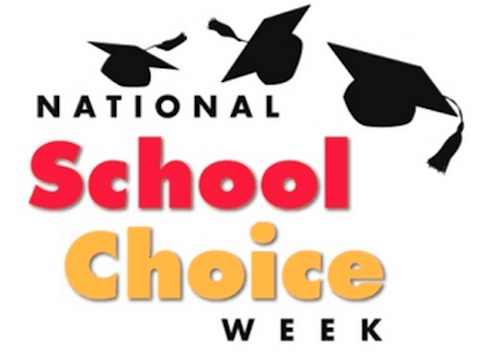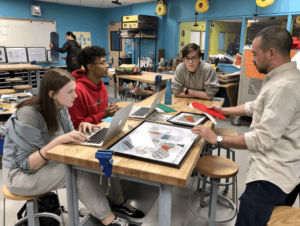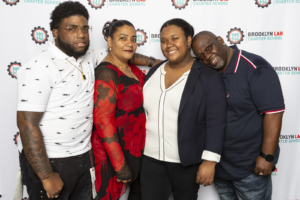For School Choice Movement, Whistle Stops are Only the Beginning

By: Beth Purcell
Kicking off the 2014 National School Choice Week with a whistle stop tour provides an apt metaphor for jumpstarting school choice advocacy efforts in the new year. The movement for more education options, like the NSCW train, is moving with speed and force across the country. But even as the movement attracts a larger and more diverse constituency and a broader geographic reach, our core message remains unchanged: Students deserve a quality education, and only unrestricted choice can make such an education attainable for every student.
That message resonates with me on both a personal and professional level as a former teacher raised in a family of educators. My daughter and son thrived at the South Carolina Virtual Charter School, an online public school. Their experience led me to advocate first on the state level and then on the national level for PublicSchoolOptions.org, a parent organization that promotes expanded access and equal funding for public charter schools.
This June, a time when most students and parents are celebrating the end of another school year, the National Alliance for Public Charter Schools reported that nearly 1 million students remain waitlisted for a spot in a charter school. Of our organization, these one million students represent one millions reasons why our work must continue.
I think of these students, and of the students who do enjoy the benefit of school choice, during NSCW. They come in different forms. Some are bullied children who return home crying after school. Others are gifted students who sleep on their desktops because instruction doesn’t challenge them – or students whose learning disabilities make the traditional classroom feel intimidating and impersonal. I think too of students with chronic health problems whose frequent absences make learning a constant challenge.
Public charter schools make a world of difference for these children. And, as innovation leads to new learning options for these students, education policy must keep up. Unequal funding tells charter school students, they don’t deserve the same education funding as their neighbor who attends the local school down the street. Restricting enrollment numbers for a new virtual school for arbitrary reasons or a lack of understanding, tells us they even education policymakers still have some learning to do.
With these students and outdated and unfair policies in mind, I look forward to the discussions that will take place through the annual school choice celebration. Urban and rural families, Notherners and Southerners, Republicans and Democrats, teachers and politicians, and most importantly the students are all doning their symbolic yellow scarf to show their support for school choice.
But protecting and expanding school choice requires more than a single week. So NSCW marks only the beginning of our 2014 advocacy. PublicSchoolOptions.org’s annual series of Capitol Days begins in January and runs through the next several months. These events allow our parents to visit legislators in their state capitols and explain the value and importance of choice in public education.
Because, you see, policymakers and pundits simply aren’t swayed by the numbers – be it the low test scores of failing schools or the number of students waiting for a public charter opportunity. Too often, they harbor suspicion or simply cling to the status quo. But when student stories take center stage, when we let a parent describe how having a choice has changed his or her student’s life, we help switch on the proverbial light bulb.
Those student stories are precisely what our country needs to hear this year – on whistle stops, in legislators’ offices, in newspapers, on blogs, and on the steps of state capitols coast to coast. So look out, 2014. This advocacy train is picking up steam.
Beth Purcell is President of PublicSchoolOptions.org, a national alliance of parents that supports and defends parents’ rights to access the best public school options for their children







0 Comments
Leave a Comment
Your email address will not be published. All fields are required.